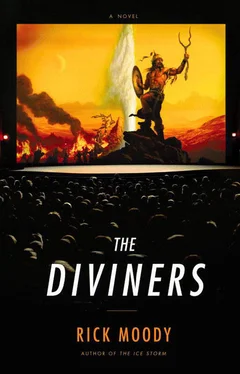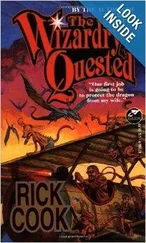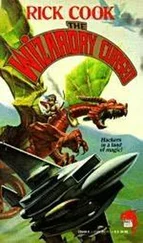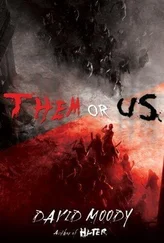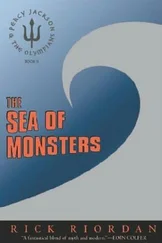Vanessa whispers to the obese woman beside her. She’s just remembered an important business obligation, sorry, really sorry, but she’s already squeezing herself over the cramped legs of the woman, whose eyes are so filled with sorrow that it’s impossible to meet them, really sorry, and there’s a horrible scraping of chairs in the back row as Vanessa tries to get to the aisle as quickly as possible. Dean never once raises her eyes to this commotion. Her voice is a benediction. And now, impassioned, she describes the instant of her epiphany, when she gives up and comes to her first meeting, when she sees that there is another way, another life.
But Vanessa is out the door. She makes for the stairs. There’s no good in the world at all until she hits the street. Oh no, the car service guy is still there, the Sikh. Oh no. He has parked, lying in wait for her. All these people, these thousands of lives and stories careening past on Fourteenth Street, and this guy has to be waiting for her. He’s mouthing something from the front seat. He’s shifting around in the front seat as if he’s going to get out. She can hear the door opening. And then a cab, one of those new sport utility taxis, its beacon illuminated, disgorges another obese woman. This woman has a cane and she’s headed for the meeting, no doubt, and Vanessa shoves past her and into the taxi.
“World Trade Center, please. And see that guy right there? The guy in the Lincoln Town Car? That guy. If he starts following you, perform evasive maneuvering. I don’t know. Steer clear. Get the hell away from him. Whatever you do.”
The driver, a Hispanic guy in his late forties, looks skeptically in the rearview.
“Take the FDR.”
Across Fourteenth Street, toward the power plant. He makes the turn and they are on the Drive. She’s just caught her breath when he careens around the southern tip of the island and then up the West Side Highway, under the skyway at World Financial Center. Jersey City looms like a bitter twin across the Hudson. The wet-hemp smell of the river. The cab pulls up at Vesey and Church. She says, “Leave the meter running.”
Who actually looks at the towers? Everyone ignores them. They are eyesores. Like the telephone poles of rural electrification that bisected the pristine countryside, they rise up out of nowhere and inflict themselves on you. Who gives a shit? The Port Authority took ten years to build them, who gives a shit? Who gives a shit that they’re so tall? Who gives a shit that they dwarf the Empire State Building? Who gives a shit? The only feature worthy of comment, as she heads across the plaza, is the gravity of their relationship. They lean in against each other, like lonely people, across the plaza, desperate for company. They lean so far in that you can’t look away. Somebody’s terrier, off the leash, bobs along at plaza level, in the penumbra of the towers, looking almost subatomic. The towers don’t make you want to write a sonnet. They don’t make you want to dance. They make you want to write a cost-benefit analysis.
Or they make you want to eat. They make Vanessa want to eat, and so she’s down in the concourse underneath, a shadow city made possible by the scale of the aboveground development. There are any number of possibilities for foods that she shouldn’t eat. These foods call to her. There’s a Nathan’s Hot Dogs, there are the burger joints. She could easily eat several of those hot apple pies. But she doesn’t want McDonald’s. She has come for one thing, for one cure. The word for her cure is doughnuts.
Toward you, Krispy Kreme, we swim, as in the waters of the Ganges. Krispy Kreme, beacon for the forgotten and disenfranchised. Krispy Kreme, with your bounteous offerings. Who else loves so unconditionally and gives so unstintingly? Who else puts others first so graciously and humbly? You, Krispy Kreme, mother for the motherless. You stand for all embraces. You are like candlelight or overheard surf. You are like a waterfall in a sylvan interior. Krispy Kreme. From your humble origins in Winston-Salem, where Vernon Rudolph’s secret yeast-raised-doughnut recipe first caught on with consumers, through your brand-spanking-new mix plant and distribution plans in the nineteen-forties and — fifties, your expansion throughout the Southeast during the civil rights era, not to overlook the tragic passing of your founder. From your sale to the Beatrice Foods Group unto your initial public offering, a scant seven months ago. Holy syllables, holy Krispy Kreme, holy hot doughnut- machine technology, holy franchising empire.
Just a little stand, here, beside the Rite Aid pharmacy, to which Vanessa trots with such purpose that the commuters coming up the PATH train escalators veer out of her way. Doesn’t matter that the Krispy Kreme at concourse level is neither flashy nor fashionable. She will not be diverted from the mission, which is the mission of doughnuts. Is the sign illuminated? Do you need to ask? The sign that indicates that the doughnuts are fresh. Yes, there is a light at Krispy Kreme, which indicates that the original glazed doughnuts of Krispy Kreme are just off the assembly line. She looks for the indicator lamp; she looks for a sympathetic light in the eyes in her fellow men and women. Yes, the light is still illuminated! How is it possible? How could they still have the doughnuts so late in the morning? Is it some kind of synchronicity? Is it a further proof of the parking-spot god, the subway-seat god, the Overeaters Anonymous god who apparently smiles on the needs of Vanessa Meandro? She is destined to have a doughnut that melts in her mouth, a doughnut that tastes like the happy ending of a romantic comedy as purveyed by a vertically integrated multinational entertainment provider under German ownership.
The line is not long. Her cheeks are flushed. She knows that the girls at the register at Krispy Kreme will not be supermodels. She knows that they are not going to look at her with the pitiful look that she gets when she buys the five or six boxes of Entenmann’s chocolate-chip cookies at D’Agostino’s. She’s not going to get that look. It’s good to be back. She hasn’t been here since she had that meeting at Windows on the World with the guys from the digital video company.
“Four original glazed.”
Impatient, shoving the Jackson into the hands of the Krispy Kreme employee, Rosie. She doesn’t even wait to be in the open space of the concourse before she has one in her mouth. And here’s the lesson. The great spiritual benefit of the Krispy Kreme original glazed doughnut is the sensation of nothingness. The satori that is Krispy Kreme is the obliteration of self, the silencing of the voices that are attached to the oppressions of life. As soon as she has the original glazed doughnut in her mouth, relief floods in. If only the delights of the Krispy Kreme original glazed could be evenly distributed across the expanse of an entire hour, instead of lasting just the one or two minutes it takes to get the delicious yeast-raised dough into her mouth. Why is the delight of an original glazed doughnut so brief? Why is her dissatisfaction so quick? She hasn’t even finished wiping the glaze from her fingers with a Krispy Kreme napkin before she’s ready to have the next. Back in the cab, Vanessa provides a new destination: corner of Eighth Avenue and Twenty-third. The driver can’t understand her at first, because her mouth is full. She repeats it, and then she offers, “My dad left when I was a kid.”
It’s the cane that does it, understand. The refined sugar. The obsidian gum of that divine cane. A black juice boiled in a vat, sticky, hard to handle. Black gum, better than the fruit of poppies when first it made its way around the globe. The cane. The cane tells us about the slave at the end of the lash, the cane tells us about the colonial adventure among the Carib, it tells us about the trusts and the trust busters, it tells us about monopoly, it tells us about profit, it tells us about novelty, it tells us about intoxication, it tells us about the dulled wits of the populace, it tells us about candy shops, and the moms and pops thereof, it tells us about Hershey, Pennsylvania, it tells us about the folks at Cadbury, it tells us not to listen to any voice but the bloodstream and its cry of plenty when the cane hits it, it tells us always to hew near to that cry, and when we are contented, always to yield again. And therefore Vanessa will say anything now. The cane has loosened the screws; the cane has made all men her friends. Doesn’t the driver speak English? Does he speak some abridged version of English? Doesn’t he realize that this is a story that has not been told to the trade magazines? She swallows down the end of the second original glazed doughnut with difficulty. The cane wants her to speak. The cane wants her to praise its reign. And she can’t stop herself, even when she happens to look out the window and see the car service guy from Brooklyn. Pulling alongside. Smiling and waving at her.
Читать дальше
